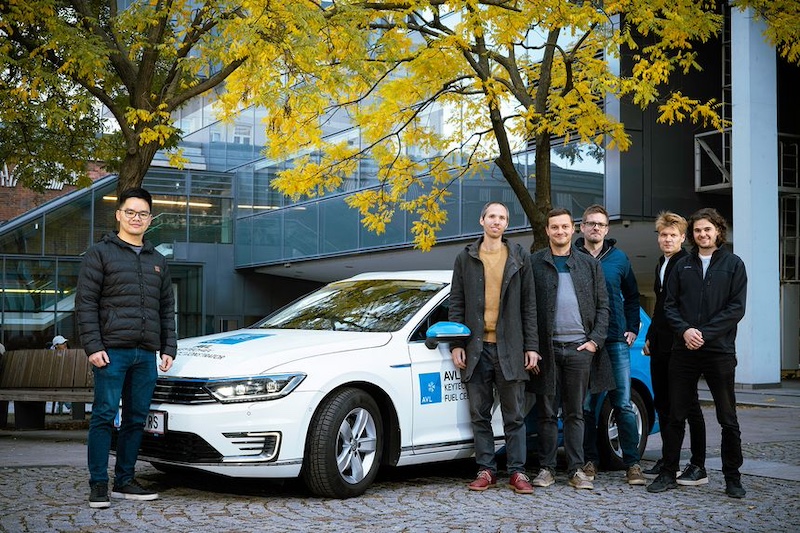TU Wien is working on predictive energy management for H2 cars
In addition to the fuel cell itself, fuel cell vehicles are also equipped with a battery. On the one hand, the battery serves as a buffer for dynamic load changes, such as when overtaking, and on the other hand, it allows the efficiency to be increased and the ageing of the fuel cell to be reduced. This is because a fuel cell works better with a more constant output – the fluctuating power requirement of the vehicle in traffic is balanced out by the buffer battery.
However, according to the researchers, this depends on energy management, which continuously divides the load between the fuel cell and the battery. This is precisely where the ‘FC-IMPACT’ project comes in. The challenge here is that the optimum energy distribution depends heavily on a variety of factors such as the speed travelled, altitude profile, traffic and weather. However, these are usually unknown before the journey begins – and the system is therefore unable to calculate the optimum energy management for the route. If energy management can be improved, hydrogen consumption can be reduced and the service life of the fuel cell extended.
Under the leadership of Prof Christoph Hametner, a team from the Institute of Mechanics and Mechatronics at TU Wien is working on predictive energy management strategies. These make use of easily available, static route information such as speed restrictions and the altitude profile to optimise energy management – in theory.
In the press release, TU Wien gives a practical example: In the mountains, for example, the battery is charged by the fuel cell before a mountain journey so that the battery can provide maximum support on inclines with high energy requirements – which would allow the fuel cell to be operated more efficiently. Ideally, the battery is then almost empty at the summit and can be recharged during the descent using recuperation. This should further increase efficiency. In addition to fuel savings, the predictive concepts also allow the service life of the fuel cell to be increased.
Within the ‘FC-IMPACT’ project, Prof Hametner’s team worked closely with the Graz-based technology company AVL, which built a fuel cell demonstration vehicle based on a VW Passat. The cooperation made it possible to validate the predictive energy management strategies, which had already been extensively tested in simulations, with the real vehicle. The validation included both real driving cycles in road traffic and tests on the chassis dynamometer. According to the press release, the simulation results were confirmed. Hydrogen consumption was reduced by more than six per cent compared to a non-predictive strategy – an impact on the service life of the fuel cell has not yet been quantified. This is part of the further work: According to the team, it is already researching concepts that will further improve energy efficiency and service life.
tuwien.at (in German)





0 Comments